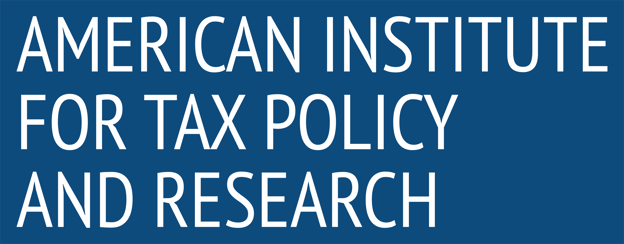Frequently Asked Questions (FAQs) on Tax Policy
1. General Tax Policy Questions
1.1 What is tax policy?
Tax policy refers to the laws and regulations that govern how taxes are collected, managed, and used by the government. It includes decisions on tax rates, exemptions, deductions, and enforcement measures.
1.2 Why do governments collect taxes?
Governments collect taxes to fund public services such as infrastructure, education, healthcare, defense, and social welfare programs. Taxes also help regulate economic activity and redistribute wealth.
1.3 What are the main types of taxes?
The primary types of taxes include:
Income Tax – Levied on individuals and businesses based on earnings.
Payroll Tax – Funds programs like Social Security and Medicare.
Sales Tax – Applied to goods and services at the point of sale.
Property Tax – Based on the value of owned real estate.
Excise Tax – Imposed on specific goods like fuel, alcohol, and tobacco.
Estate and Gift Tax – Charged on the transfer of wealth.
2. Tax Policy and Economic Impact
2.1 How does tax policy affect the economy?
Tax policy influences economic growth, employment, and investment. Higher taxes can provide government revenue but may discourage spending and investment, while lower taxes can boost economic activity but may reduce public funds.
2.2 What is a progressive tax system?
A progressive tax system imposes higher tax rates on higher income levels. This system aims to reduce income inequality by requiring those who earn more to pay a larger percentage of their income in taxes.
2.3 What is a regressive tax system?
A regressive tax system places a higher burden on lower-income individuals since they pay a larger proportion of their income in taxes, such as sales taxes and excise taxes.
2.4 How do tax cuts impact economic growth?
Tax cuts can stimulate economic growth by increasing disposable income and encouraging business investment. However, if not offset by spending cuts, they can also lead to larger budget deficits.
3. Business Taxation
3.1 What taxes do businesses pay?
Businesses may be subject to various taxes, including:
Corporate income tax
Payroll taxes
Sales tax (for applicable transactions)
Excise taxes (on certain goods)
Property tax (on business-owned real estate)
3.2 What is a pass-through entity?
A pass-through entity (such as an LLC or S-corporation) does not pay corporate taxes. Instead, business income “passes through” to the owners, who report it on their individual tax returns.
3.3 What are tax incentives for businesses?
Governments offer tax incentives like deductions, credits, and exemptions to encourage investment, job creation, and innovation. Examples include:
Research & Development (R&D) credits
Depreciation deductions
Tax breaks for small businesses
4. International Taxation
4.1 How are multinational corporations taxed?
Multinational corporations (MNCs) pay taxes in multiple countries based on where they earn income. Many countries use a territorial or worldwide taxation system to determine tax obligations.
4.2 What is a tariff?
A tariff is a tax on imported goods, designed to protect domestic industries and generate revenue. Higher tariffs can make foreign products more expensive, encouraging local production.
4.3 What is tax havens and how do they impact tax policy?
Tax havens are countries or jurisdictions with low or no corporate taxes, attracting businesses seeking to reduce their tax burden. This practice can reduce tax revenue for high-tax countries and lead to global tax avoidance issues.
5. Tax Policy and Individual Taxpayers
5.1 How can individuals reduce their tax liability?
Individuals can reduce their tax burden through legal means such as:
Taking advantage of deductions (e.g., mortgage interest, medical expenses).
Claiming tax credits (e.g., Child Tax Credit, Earned Income Tax Credit).
Contributing to tax-advantaged accounts (e.g., 401(k), IRA).
5.2 What happens if I don’t pay my taxes?
Failure to pay taxes can result in penalties, interest charges, wage garnishments, and legal actions by the IRS. In severe cases, tax evasion can lead to criminal charges.
5.3 How do tax refunds work?
A tax refund occurs when an individual has overpaid taxes throughout the year, either through payroll withholding or estimated tax payments. The IRS processes refunds after tax returns are filed.
6. Future Tax Policy Changes
6.1 How often do tax laws change?
Tax laws can change frequently due to new legislation, court rulings, and government policy shifts. Taxpayers should stay informed about updates to deductions, credits, and rates.
6.2 What are current tax reform debates?
Key debates in tax policy include:
Corporate tax rate adjustments
Expanding or reducing tax credits
Addressing income inequality through tax changes
Revising international tax agreements
6.3 Where can I stay informed about tax policy changes?
Reliable sources for tax updates include:
The IRS website (irs.gov)
The American Institute for Tax Policy and Research (AITPR)
Congressional Budget Office (CBO) reports
Conclusion
Understanding tax policy is essential for individuals, businesses, and policymakers. Staying informed about tax laws and changes can help taxpayers plan effectively and ensure compliance. For expert analysis and updates, visit the American Institute for Tax Policy and Research (AITPR).


